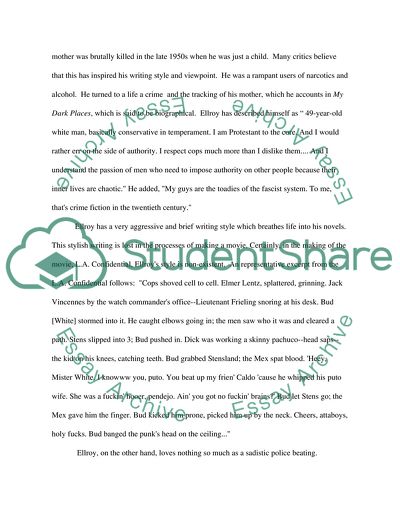Cite this document
(“L.A. Confidential: Film vs.Novel Essay Example | Topics and Well Written Essays - 2250 words”, n.d.)
L.A. Confidential: Film vs.Novel Essay Example | Topics and Well Written Essays - 2250 words. Retrieved from https://studentshare.org/literature/1511546-la-confidential-film-vsnovel
L.A. Confidential: Film vs.Novel Essay Example | Topics and Well Written Essays - 2250 words. Retrieved from https://studentshare.org/literature/1511546-la-confidential-film-vsnovel
(L.A. Confidential: Film vs.Novel Essay Example | Topics and Well Written Essays - 2250 Words)
L.A. Confidential: Film vs.Novel Essay Example | Topics and Well Written Essays - 2250 Words. https://studentshare.org/literature/1511546-la-confidential-film-vsnovel.
L.A. Confidential: Film vs.Novel Essay Example | Topics and Well Written Essays - 2250 Words. https://studentshare.org/literature/1511546-la-confidential-film-vsnovel.
“L.A. Confidential: Film vs.Novel Essay Example | Topics and Well Written Essays - 2250 Words”, n.d. https://studentshare.org/literature/1511546-la-confidential-film-vsnovel.


